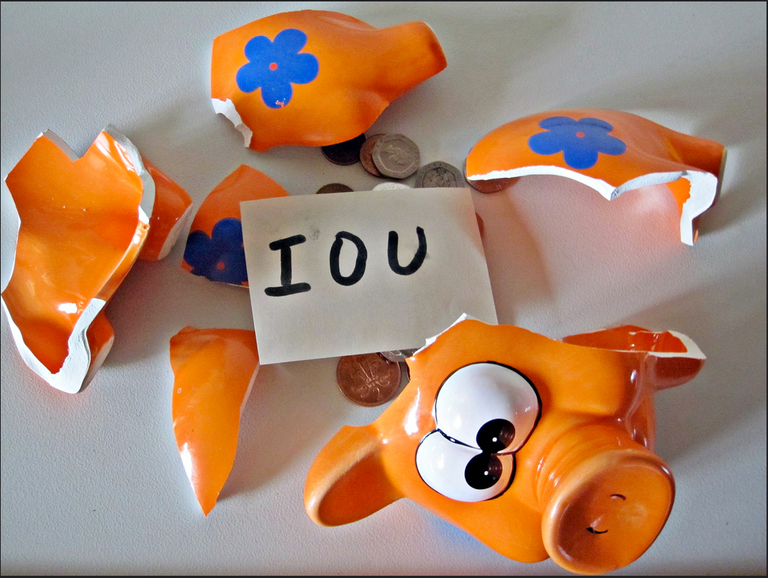
Banking and the Community: A Brief History #
Time was when a “bank” was a community endeavor. Local residents of a community deposited their money into a bank, which held it in trust. Depositors’ funds were held in trust, and most banking instruments were fairly basic. Those deposits were bundled to issue loans, at a reasonable interest rate. That interest paid for bank operations, while offering a small return to depositors. Everything was relatively clean and simple; most importantly...it was a community-centered enterprise. Depositors knew their banker, the banker knew them, and the system more or less worked on reputation and trust.
This certainly wasn’t perfect. As banks grew, risks grew, and banker salaries grew. Game playing for profit ensued, snowballing until the great depression brought the whole edifice tumbling down. The government stepped in to stop the slide, reform the system, and bring stability back into the market. With regulations, insurance programs, and government guarantees for depositors, the snowball melted, and a mild spring-like season of banking was ushered in for nearly a half century. Banking was boring again, if not necessarily a “community endeavor”.
What Happened #
In the latter quarter of the last century, greed took over the minds of bankers everywhere. Wall Street starting taking bigger and bigger bets, and kept making larger and larger profits. This funneled to the top in the form of banker bonuses and Executive and CEO compensation. Generally speaking, this was relatively boring. Investment banks have investors, after all, and those investors take risks. Those risks are part of where the profit, for bankers and investors alike, is generated, and on every risk taken, somewhere there must be a loser. But the gamblers in the system, and their subsequent bets, were largely a separate market, and consumer banking was still pretty boring.
Over time, however, the greed of bankers started to outpace the millions they made. Competition at its worst set in, and the banking industry sought bigger pools with which to gamble. Brick by brick, the wall protecting consumer funds from investment banks started to fall until, ultimately, the biggest banks were again playing with consumer funds to fuel their gambling addiction. Profits and bonuses for the top 1% soared, while the system as a whole started to falter. Investment bankers cared more about “market making”, “financial innovation”, and “shareholder value” than they did protecting the livelihoods of the average citizen. Banks began offering financial products that customers couldn’t understand or afford; the risks attached to those products were resold and used as more gambling fodder. Bankers’ books were augmented with outlandish fees and backwards business processes. The whole system became so unwieldy that, eventually, it collapsed, resulting in the great recession of 2008.
These bankers, after having gambled their way into wealth using the hard-earned savings of the American people, went to the treasury to get a bailout from...wait for it...the American people. Marginal regulations ensued, bank mergers proliferated, and now the system is in much the same place as it was in 2006 and 2007, but with bigger banks making bigger bets.
Something fundamental has to change...and it has to change now.
Back to community, powered by tech #
The interconnectedness of the global online community has brought us together like never before. Tech like blockchain and artificial intelligence are making the world flatter, smarter, and more connected than ever before, while making us more transparent and open. The rise of New Power dynamics (empowerment of the community and the collective) are replacing old power dynamics in a meaningful way. For consumer finance, this offers an enticing possibility.
Building a platform using blockchain technology allows us to break down the inherent hierarchical nature of the traditional banking organization. We can create new system that is consumer-centered and individually empowered. We’re building a banking co-op, formed by individuals across the globe, all connected to one another, sharing information and accountability through the blockchain. Similarly, these participants can choose who they want to help, to whom they want their deposits going, and on what level they want to accept risk vs. reward. All services can and will be provided by a network of depositors based on their own needs, goals, and risk tolerances.
Artificial Intelligence allows us to analyze the performance attributes of the best and brightest in the chain to provide tools, advice, and services to those who most need it. It allows us to see a holistic picture of your financial health, and serve up contextualized recommendations for how to improve it. It allows us to create a better "credit score" based on your actions, not on your debt.
Imagine with us for a minute, a world in which a bank CEO can no longer decide whether or not you “deserve” access to basic banking tools, where you are connected with your global community, where your “bank” works to make you wealthier, not itself. For the first time in the last century, technology has advanced to the point where digital solutions can revitalize the concept of the community bank…are you with us?
Over the coming months, we are unveiling how we will change banking for the better, allowing anyone to build wealth. We are launching a mission to democratize banking, which to hold true to our mission, must start and end with you. Tell us how we can make the banking experience better. What frustrations do you have? What you wish was better? What future do you want to build with us?
Pre-Registration now open: https://register.odinmoney.com
Congratulations @odinmoney! You received a personal award!
Click here to view your Board of Honor
Congratulations @odinmoney! You received a personal award!
You can view your badges on your Steem Board and compare to others on the Steem Ranking
Vote for @Steemitboard as a witness to get one more award and increased upvotes!